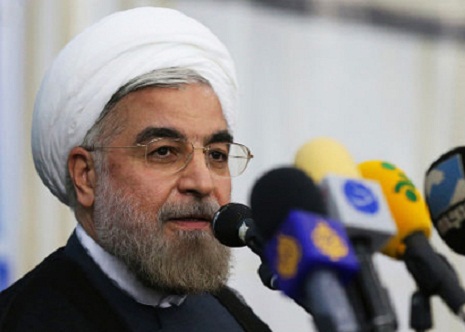“The ones that orchestrated the price fall in order to pressure certain countries will regret their actions,” The Iranian president said.
“They can’t continue this trend. If Iran loses some profit under current situation, other oil producing countries such as Saudi Arabia and Kuwait lose more,” he added.
“Oil revenues account for 80 percent of Saudi Arabia’s budget and 95 percent of Kuwait’s budget,” Rouhani said.
“But oil exports account for only 33 percent of Iran’s budget,” he explained.
According to the Iranian president, crude oil exports account for 90, 95, and 60 percent of the total exports of Saudi Arabia, Kuwait, and Iran, respectively.
“We will increase our non-oil exports this year to compensate for the decrease in oil revenues,” he noted.
Falling global oil prices forced Iran’s government to decrease the oil price figure in the proposed budget bill for the next Iranian calendar year (to start March 21) to $72 per barrel from the current figure of $100.
Iran is expected to face severe budget deficit in the current Iranian calendar year (to end March 20).
The country decided to sell its crude oil to Asia in November at the biggest discount in almost six years. The decision was made after Saudi Arabia cut prices for all grades and to all regions for November. Qatar and Iraq decreased their prices as well.
Based on Iran’s budget law, the country is supposed to export 1.4 million barrels of oil (including gas condensate) per day.
Reports suggest that if the current tendency continues, the total budget deficit may soar above $2.5 billion.
Iranian President Hassan Rouhani also predicted that Iran’s total oil revenues will be 30 percent less than expected.
Experts believe that due to the continuing fall of oil prices in global markets, a budget deficit in the next calendar year is also inevitable.
More about:
















































